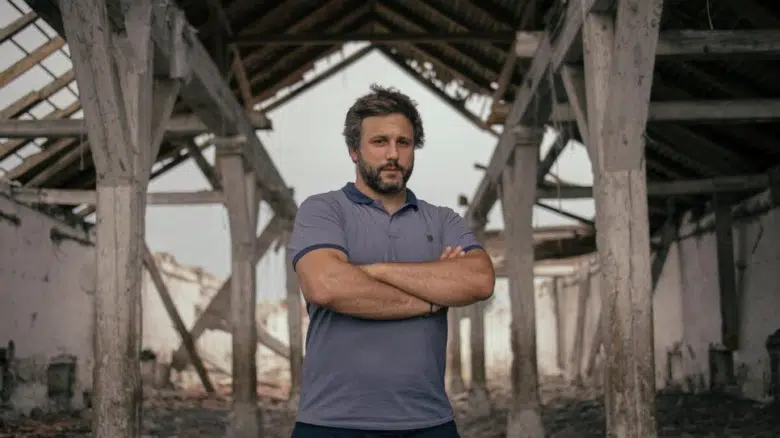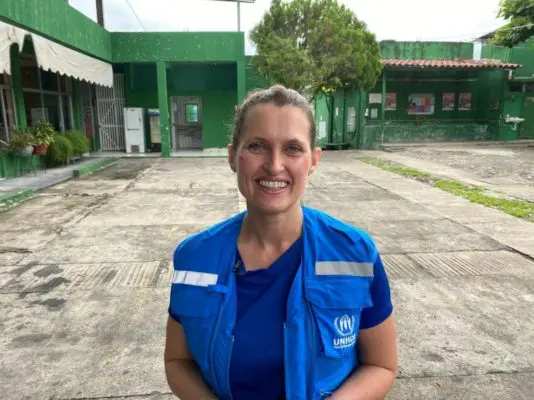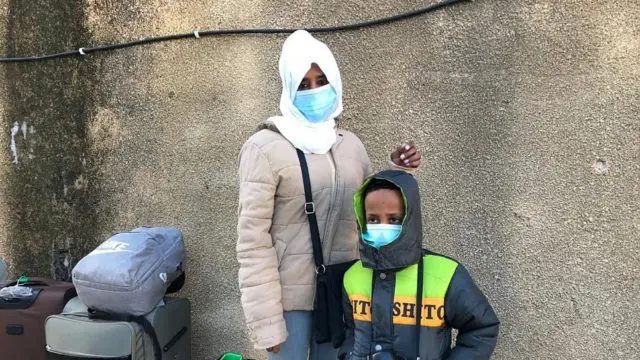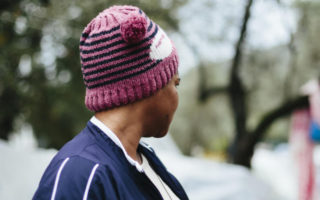
Human rights lawyer, Nikola Kovačević, has represented almost 30 per cent of asylum-seekers granted protection in Serbia.
© UNHCR/Vladimir Zivojinovic
UNHCR has named Nikola Kovačević the UNHCR Regional Nansen Refugee Award winner for Europe for his dedication to providing legal assistance to refugees and asylum-seekers in Serbia.
By Farrah Geddes in Belgrade, Serbia
Nikola Kovačević starts his workday as a lawyer not in a suit, but in a T-shirt and trainers. Day and night, he stands ready to jump in his car and rush to help asylum-seekers and refugees in need.
The 32-year-old has devoted his life to helping asylum-seekers and refugees. He offers not just free legal advice, but also helps them apply for asylum and find shelter, a job and access education and medical assistance in the hope they will find opportunities and a new life in Serbia.
Kovačević, who has worked in refugee protection since 2012, has represented almost 30 per cent of asylum seekers granted protection in Serbia. He tracks cases long after they are resolved and remains friends with his clients, sharing food and learning about their culture.
Because of his exceptional dedication and substantial contribution to the improvement of asylum systems in Serbia, he has been chosen as the regional winner for Europe of the UNHCR Nansen Refugee Award, a prestigious annual prize that honours those who have gone to extraordinary lengths to support forcibly displaced and stateless people. He is the first ever winner from Serbia.
“Nikola’s work contributed towards important improvements of the asylum procedure in Serbia, including an increase in the number of refugees being granted international protection.” Francesca Bonelli, UNHCR Representative in Serbia said. “His devotion to the refugee cause in Serbia showcases the importance of everyone’s involvement and contribution to protection of the people forced to flee their homes. Nikola’s example serves as an inspiration to all those, especially the young, who are ready to go the extra mile in providing support to refugees in need.”
“What we are witnessing is the twilight of rule of law at the border.”
For refugees, access to a country is a precondition for being able to apply for asylum. States have the right to control their borders, but under international refugee law they also must ensure that refugees can access protection. This is not always respected. Many of Kovačević’s clients have been exposed to violence during their search for safety. Some have even been pushed back by authorities as they attempt to cross borders.
“What we are witnessing is the twilight of rule of law at the border. If we lose the battle at the borders, we will lose the battle for the entire system,” said Kovačević.
Many of the asylum-seekers he has helped have been deeply affected by the experience of being violently pushed back from a border.
Recently, he met Abas, an asylum-seeker from Afghanistan, who had suffered serious injuries to his ribs and spine during a push back. Kovačević offered him legal aid and arranged a medical examination. He is continuing to work with Abas to help him access asylum and make Serbia his new home.
“Unfortunately, this is just another day in the office,” said Kovačević. “This is something we see on a regular basis. It is very important to continue doing what we’re doing, because we need to find a way for this to stop.”
“I was completely lost, it’s like nobody could hear me.”
Bilal, an asylum-seeker from Syria, recalls meeting Kovačević at a dark time in his life in 2016. “I was completely lost, it’s like nobody could hear me,” said Bilal, who was homeless at the time. “But then there was this light at the end of the tunnel and there was Nikola.”
The lawyer offered him free legal assistance and helped him to settle into a home in Serbia, vouching for him with his new landlord. He then referred him to UNHCR and to a psychologist for counselling. He also empowered Bilal to help others, by using his case for strategic litigation.
“He is one of the bravest people I have ever met,” Kovačević says about Bilal. “By allowing us to litigate his case, he contributed immensely to the protection of countless others.”
In addition to his work with asylum-seekers, Kovačević is building a community of young lawyers interested in human rights through his role as assistant law professor at Union University in Belgrade.
Jana, a former student, explains how his example inspired her to get into human rights law. “Seeing somebody that believes so much in what they’re doing was what inspired me and made me want to do this as well,” she said.
Subscribe to UNHCR’s mailing list
For Kovačević, it is his interactions with refugees and asylum seekers that keep him motivated. “When you speak with someone in a desperate situation, you explain who you are, what you do… they relax and appreciate that there is someone who wants to speak with them,” he said.
“This is the essence of the work that we do, to find humanity and to treat every human being with dignity.”
All the names of asylum-seekers and refugees used in this article have been changed for protection reasons.
Originally published by UNHCR on 29 September 2021.





